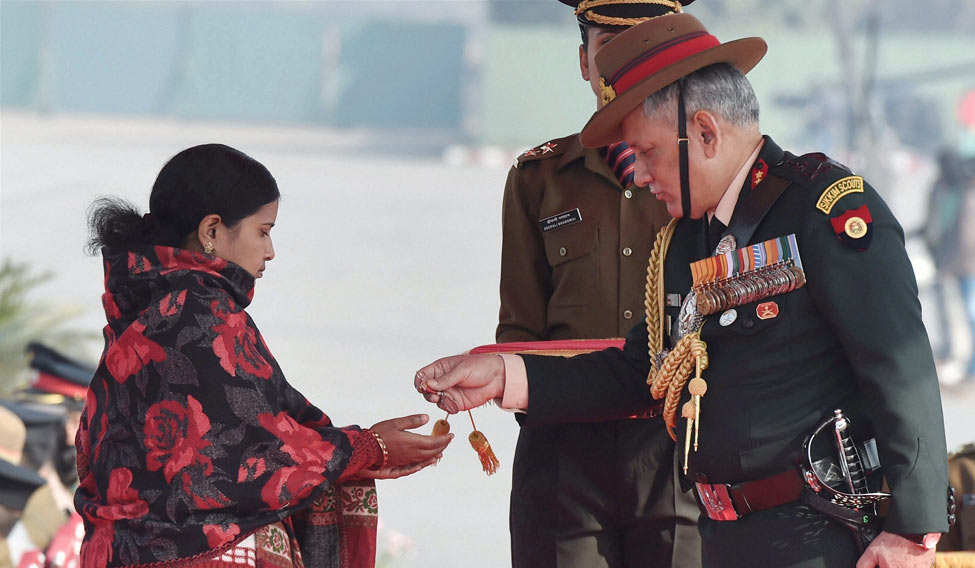Nirmala Sitharaman, the country's first full-time woman defence minister, has changed a draconian army rule that had denied benefits to the widow of a gallantry award winner if she remarried someone else other than her dead husband's brother.
After receiving representations from various quarters to remove the condition of a widow’s remarriage with the late husband’s brother for continuation of the monetary allowance, Sitharaman decided to get rid of this age-old rule.
"The issue was considered by the Government of India and it has now been decided to remove the condition of the widow’s remarriage with the late husband’s brother for continuation of the monetary allowance vide ministry of defence (MoD) letter dated November 16, 2017," explained a statement issued by the ministry of defence.
Due to this law, several war widows or widows of gallantry award winners were denied benefits. Janak Anand, who is 60 years old, was one of them. Her first husband, Captain S.K. Sehgal, died during the 1971 India-Pakistan war and he was awarded the Vir Chakra posthumously for his bravery a year later. Two years after his death, Janak married another army officer, Major Dipak Anand. But the Army Headquarters stopped granting her the monetary benefits attached with her first husband's gallantry award, citing rules.
After several attempts to convince the authorities about the issue, Janak approached the Armed Forces Tribunal (AFT) against the law. The AFT came down heavily on the government and stated in its order in September this year that on the one hand, the President of India confers a gallantry award to a lady as a mark of respect for her husband's sacrifice for the country, while, on the other hand, such derogatory policies humiliate the widow by denying her rightful dues.
According to the ministry of defence, the recipients of the gallantry awards were entitled to the monetary allowance as per the letter of 1972 of the ministry of defence, superseded by another letter of the MoD in 1995, which has been revised from time to time. This rule stated the existing condition for grant of monetary allowance: the allowance shall be admissible to the recipient of the award and on his death, to his widow lawfully married by a valid ceremony. The widow will continue to receive the allowance until her remarriage or death. The payment of the allowance will, however, be continued to a widow who remarries the late husband’s brother and lives a communal life with the living heir who is eligible for family pension.





